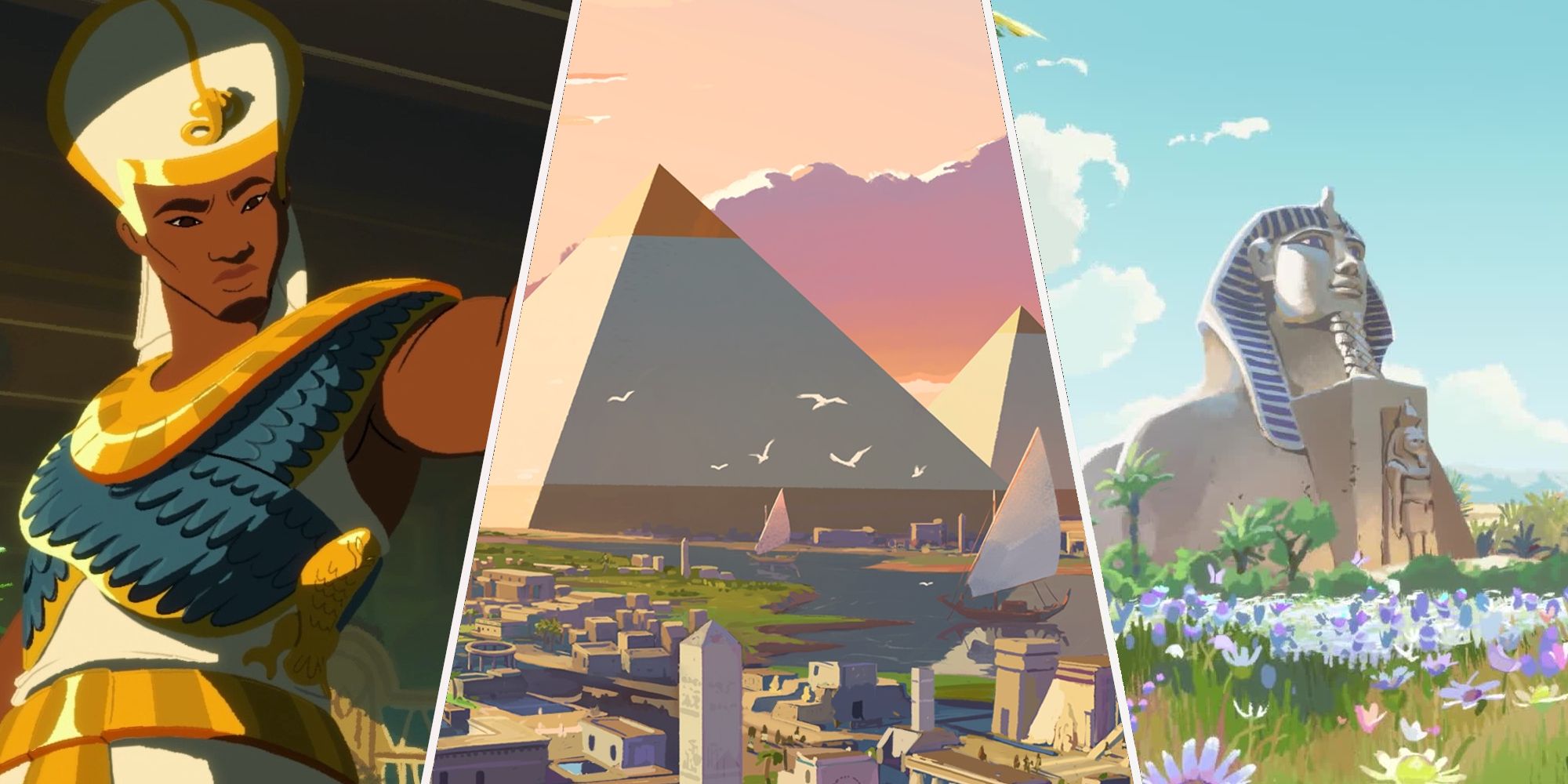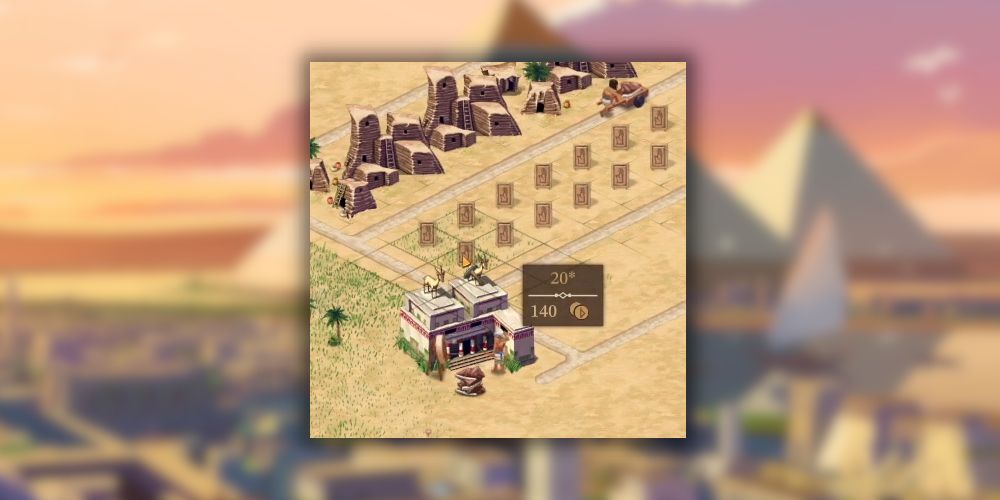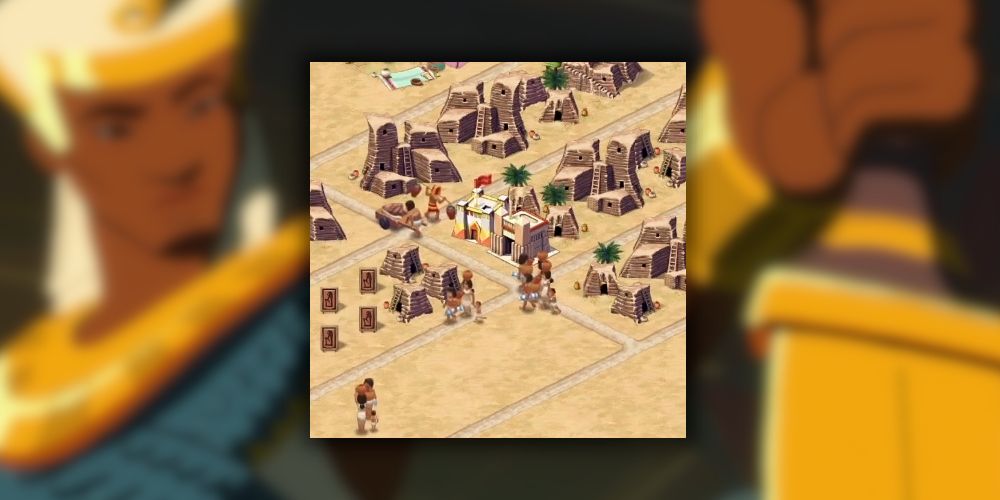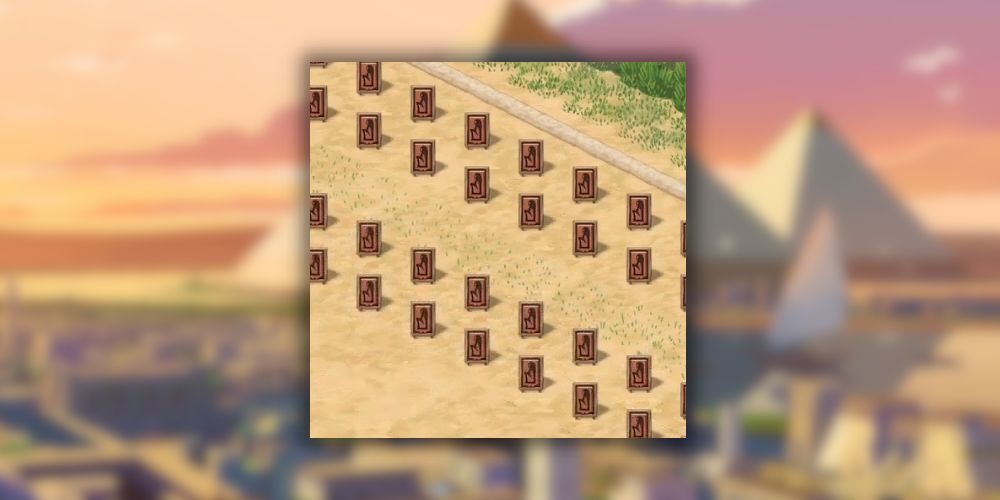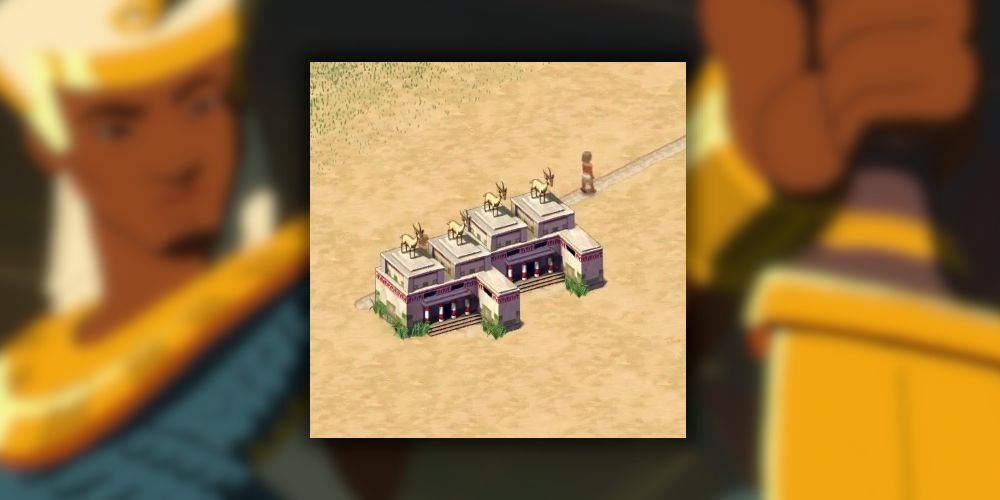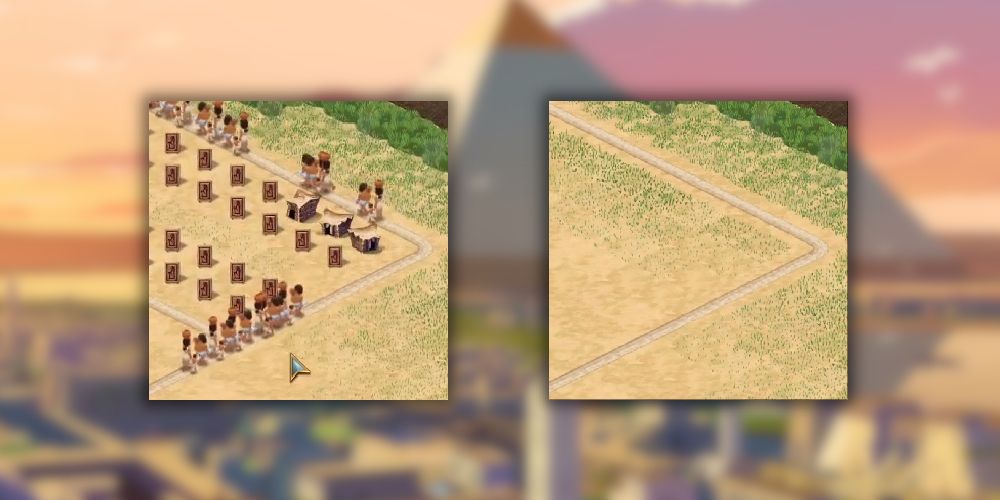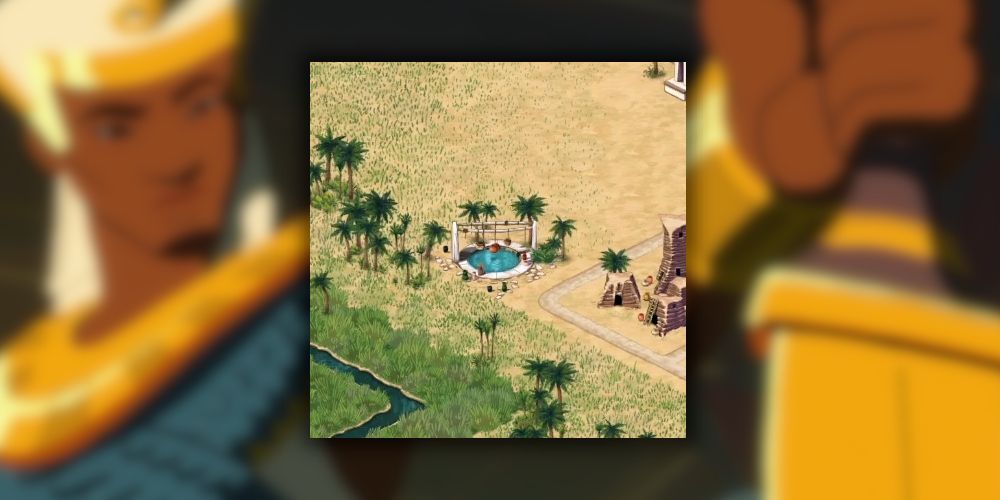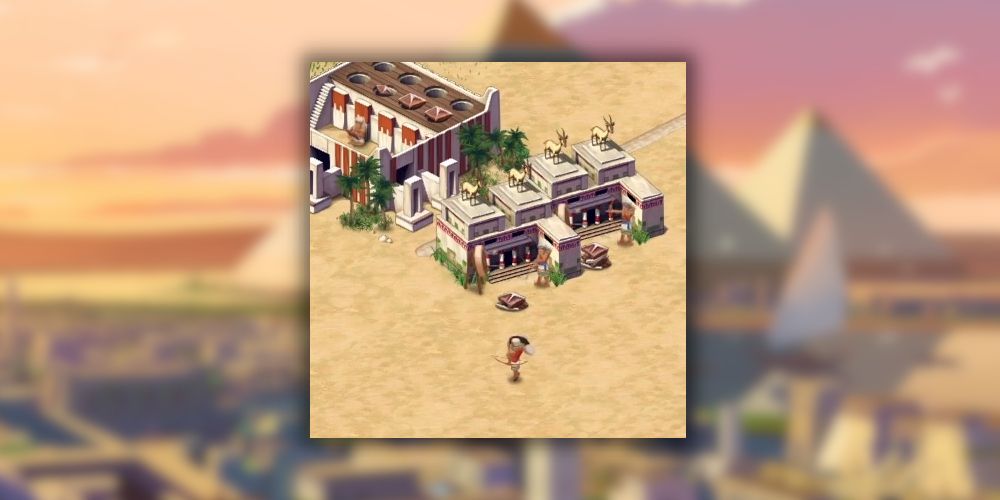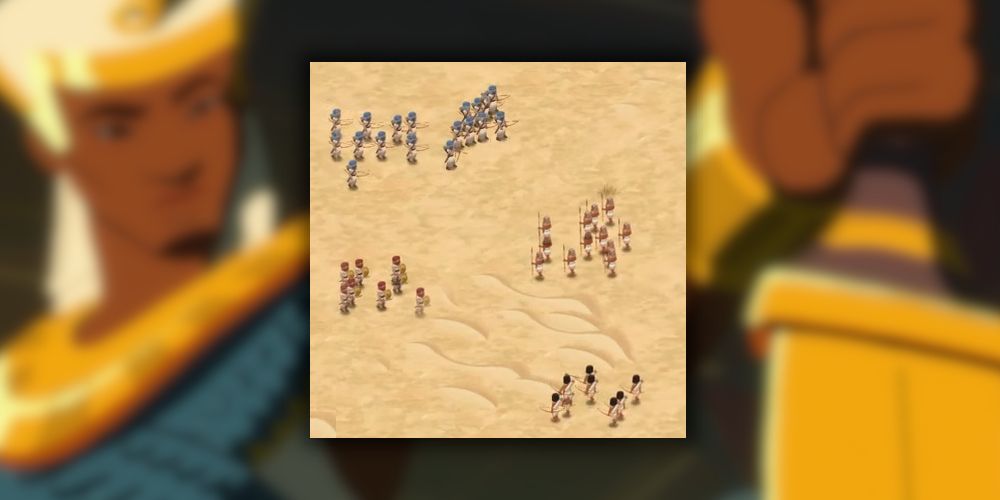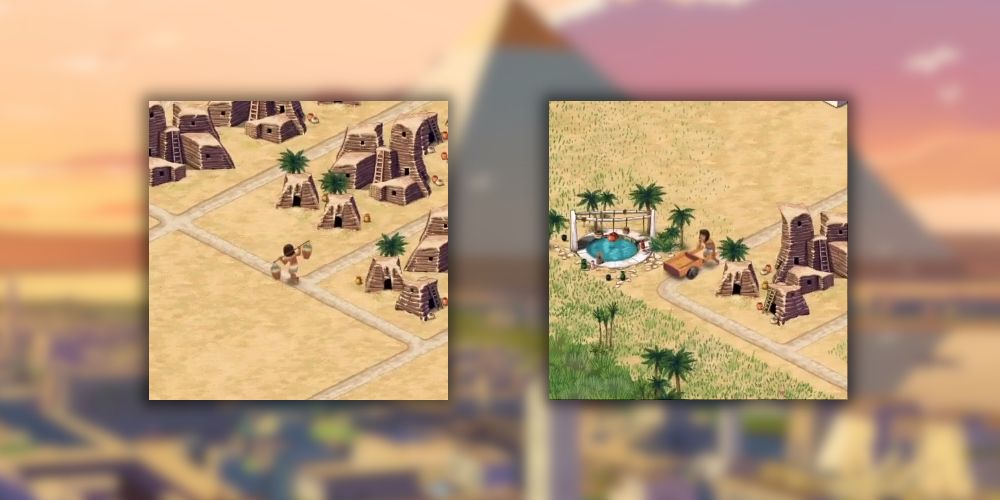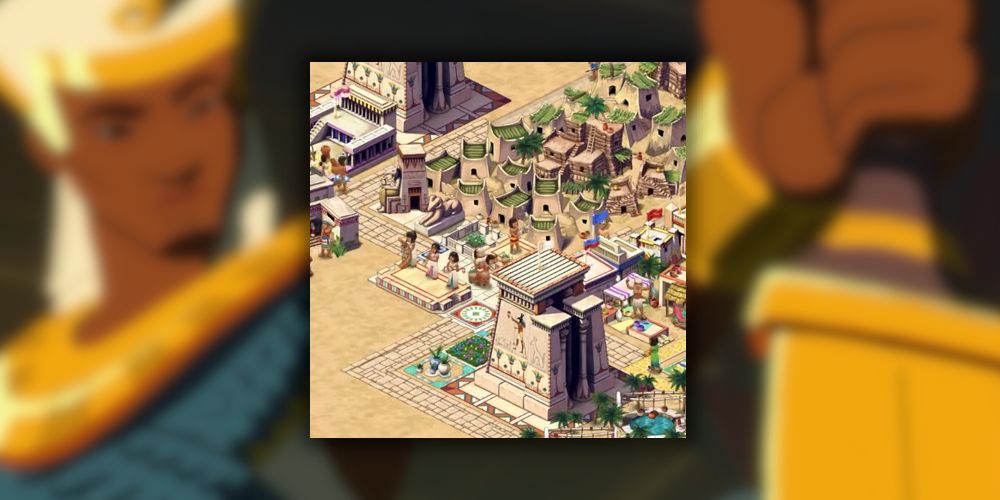Now is one of the best times to get into the city-building genre, as Pharaoh: A New Era has splashed onto the scene to revive the 1999 Egyptian classic Pharaoh. With new quality-of-life options, visuals, and tweaks to gameplay systems, players of all skill levels can hop into this experience with ease.
Despite Pharaoh's dedication to the historical reality of the rise of Egyptian civilization, there are still inconsistencies in the gameplay that make the stellar realism buckle and wobble. You can still learn a lot from the game about the birth of Ancient Egypt, of course, but like anything, take what you're seeing with a grain of salt.
10 Why Are Structures Built Instantly?
This is by far the strangest thing to include in a game that tries so hard to realistically represent the rise of an empire; structures in the world, like Hunting Lodges and houses, are built instantly in great numbers without the need for resources.
The struggle for civilization and survival has always been about the amount of effort it takes to build up from nothing, and this way of incorporating structures into gameplay doesn't represent the intense work that it took to build fantastic monuments like the Pyramids. It doesn't have to be one-to-one, but building in Ancient Egypt should be a little more complicated than having your desires appear at the click of a button.
9 Why Are People As Large As Buildings?
From a style perspective, having building-sized people on the map gets visual information across very nicely, allowing you to track different workers as they perform their roles diligently. At the same time, how are these gigantic people supposed to fit into their tiny lodgings?
The game could have provided better ways to track individual workers without making every character look as though they're visiting a model village – at this scale, people can trek across an entire city without breaking a sweat. Since you can speed the game up, there shouldn't be any problem with giving the people of Egypt a workout.
8 Why Do Houses Disappear Without Roads?
Bafflingly, if you don't connect groups of houses to the Kingdom Road, they will eventually disappear, ignored by the droves of immigrants that would typically make a home in them. But it doesn't matter how far a housing plot is from the road – whether they're a space away or across the map, these plots will be shunned for their embarrassing lack of convenience.
There's no reason for people traveling the Kingdom Road to be so picky about their domiciles, especially because natural roads tend to form in places of high traffic. Instead of needing to be directly adjacent to a road, it would make a lot more sense if housing could be in the general vicinity of one, allowing for more dynamic and realistic communities.
7 Why Can't You Hunt Without A Hunting Lodge?
Now, it makes plenty of sense that the only way to hunt efficiently is through the Hunting Lodge – organization is the way that societies get enough resources to survive, after all. The aspect of hunting that is in question is unsanctioned hunting.
If people were living in an area and starving without legal means to obtain food, it would only be natural for people to start scavenging for food themselves. Sadly, the people of your cities will not take up the bow unless explicitly asked, severely limiting what would have been an interesting consequence for not establishing a source of food fast enough. The desperate hunters could even overdo it and anger the gods with their greed, but for now, your subjects will simply suffer in silence.
6 Why Doesn't Anyone Use Roads Without Plots?
If you know anything about roads, you'll know that they're primarily made to be traveled on – that's why it's confusing to see the most important road in the kingdom devoid of life until you place down some housing plots.
In a time when travel was long and information could only move as fast as the people that held it, there's no doubt that a road like that would at least have some occasional traffic other than swarms of people who are able to detect when new housing has been developed.
5 Why Do Wells Come Prebuilt with Trees?
It's something you might not have noticed, but both the well and water supplies come with trees when they're built, regardless of how lush or barren the surrounding environment is. It makes you wonder if your blueprints for these water sources just include trees, your architects having no choice but to enact your grand vision.
What makes it even weirder is that the trees had to be added to these assets intentionally, meaning that the developers thought that they were a necessary part of any water source's design – considering that this is the same game that gives you lengthy descriptions of how different buildings fit into ancient life, it's strange that this choice would be made so arbitrarily.
4 Why Can Hunters Lift Prey With One Hand?
Many of the missions in Pharaoh: A New Era will see you setting up Hunting Lodges to hunt the game that surrounds your civilization; typically, you're going to be targeting ostriches, which your hunters will quickly kill and bring back to the lodge before picking their next prey.
But they don't just drag the bodies of the ostriches back along the ground – they're animated to be carrying the bird on one of their shoulders. This would make a lot of sense if it was a smaller animal, but ostriches are large and heavy creatures that would take dedication to carry with two hands, let alone one.
3 Where's The Warfare?
One of the big tweaks introduced in Pharaoh: A New Era is the significant scaling back of the original game's warfare systems, making them much less complicated via a simulation screen for the many battles that you will have to fight.
But due to the nature of the combat, you'll only really fight if you get invaded, never receiving the opportunity to yourself attempt to launch an attack. Further, you can't use strategy or good city design to take advantage of attackers, and must instead focus all your efforts on bolstering your troops so that they can outnumber enemies on a flat battlefield. Numbers are important, but it's unrealistic for them to be the only factor in your victories.
2 Why Is Citizen Competence So Inconsistent?
The citizens of your kingdom are complicated people; they won't do anything without explicitly built areas for trade, fun, or work, but they'll also develop buckets and wheelbarrows for their jobs without a second thought. It starts to become apparent through these contradictions that the level of sentience that these people have is hard to decipher.
Walkers, for example, need to be explicitly told which intersections and roads are off-limits for them to explore, regardless of the complexity of the city – the game even makes you block off the exits to the city in its introductory missions so that they won't accidentally wander off. At the same time, the people of your civilization rarely need guidance when it comes to fairly distributing resources, something that's a struggle even in modern society.
1 Why Don't Workers Ever Rest?
Workers like archers and jugglers never stop doing their job as long as they're alive – no free time, shift change, or bathroom break is in these laborers' futures. Since you never get to see your city during the night, they also never sleep.
From a design perspective, it isn't the worst idea to avoid moments of downtime, as it would break the flow to have to wait more before you could start collecting resources again; but instead of creating unstoppable soldiers of production, there could simply have been a system where workers switch out with each other when the population is large enough.

